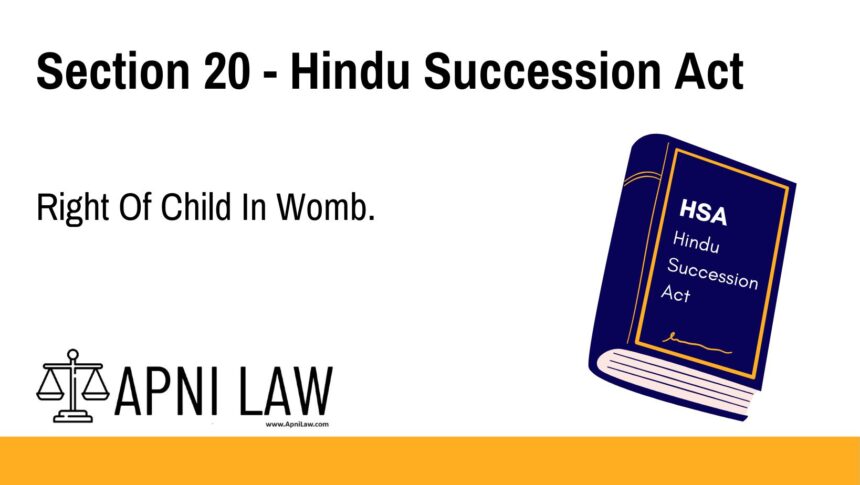Code: Section 20 – Hindu Succession Act
A child who was in the womb at the time of the death of an intestate and who is subsequently born alive shall have the same right to inherit to the intestate as if he or she had been born before the death of the intestate. The inheritance shall be deemed to vest in such a case with effect from the date of the death of the intestate.
Explanation of Section 20 – Hindu Succession Act
Section 20 protects the inheritance rights of an unborn child. If a person dies intestate (without making a will), and their child is still in the womb at the time of death, that child is legally treated as an heir—provided the child is born alive.
Key points under this section:
- A child in the womb is considered a legal heir from the moment of the intestate’s death.
- The property vests in the child from the date of the intestate’s death, not from the child’s date of birth.
- This ensures that the unborn child’s right to inheritance is protected and equal to that of other heirs.
This section ensures that no rightful heir is excluded simply due to not being born at the time of the parent’s death.
Illustration
Example: Inheritance by a Child in the Womb
Mr. A passes away without a will. His wife is pregnant at the time. A few months later, she gives birth to a healthy baby. According to Section 20, the child is entitled to an equal share in Mr. A’s property. The law treats the child as if they were already born at the time of Mr. A’s death.
Common Questions and Answers on Section 20 – Hindu Succession Act
1. Does an unborn child have inheritance rights under Hindu law?
Yes. Section 20 states that a child in the womb at the time of the intestate’s death has the same rights as other heirs, provided the child is born alive.
2. When does the child’s right to inheritance begin?
The right to inherit begins from the date of the intestate’s death, not the child’s birth.
3. What if the child is not born alive?
If the child is stillborn, they are not considered an heir, and the inheritance does not vest in them.
4. Does this rule apply to both sons and daughters?
Yes. The law applies equally to all children, regardless of gender.
Conclusion
Section 20 of the Hindu Succession Act ensures that an unborn child, who is later born alive, receives equal rights to inherit the property of a deceased parent. The inheritance is considered to vest from the date of the parent’s death, maintaining fairness and equality among all legal heirs.








